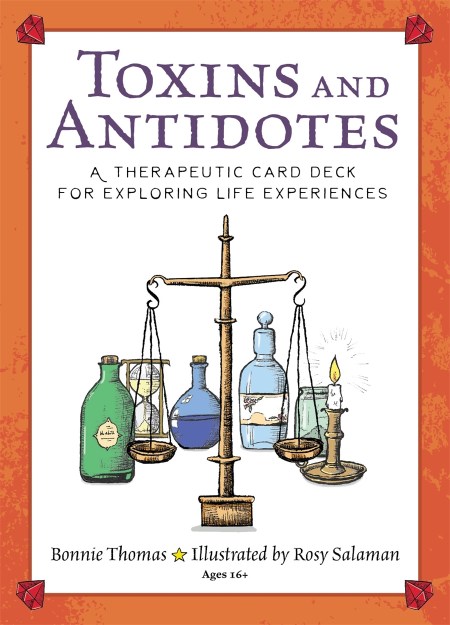We have updated our Privacy Policy Please take a moment to review it. By continuing to use this site, you agree to the terms of our updated Privacy Policy.
Help clients to reflect on their life experiences with this therapeutic card set. Featuring 100 cards with words and phrases relating to family, relationships, education, religion and physical and mental health, clients can use the cards to decide whether an experience has been a toxic influence or a more positive antidote to a particular issue.
Ideal for use with people aged 16+, this original activity will help clients gain a deeper understanding of themselves and will show how they can reframe perspectives around negative experiences to aid healing and personal development. The set includes a blank card which can be photocopied and used to write additional words and phrases, along with a booklet with guidelines and further ideas for use in therapy and counseling sessions.
Ideal for use with people aged 16+, this original activity will help clients gain a deeper understanding of themselves and will show how they can reframe perspectives around negative experiences to aid healing and personal development. The set includes a blank card which can be photocopied and used to write additional words and phrases, along with a booklet with guidelines and further ideas for use in therapy and counseling sessions.
Newsletter Signup
By clicking ‘Sign Up,’ I acknowledge that I have read and agree to Hachette Book Group’s Privacy Policy and Terms of Use
Reviews
A lovely, accessible tool which will serve to help develop the therapeutic encounter, providing a valuable aid to clients for exploration, expression and enlightening conversations.
The set will work well with individuals who need help with putting words towards their emotions and situations. This gives clinicians different ways to use the cards, as well as allowing clients to discover that they can put their thoughts and feelings into words with the help of the cards.
This deck helps to break down the barriers that many of our clients face when attempting to describe emotional experiences. It helps clients to see life events in different ways that they may not have in the past.

